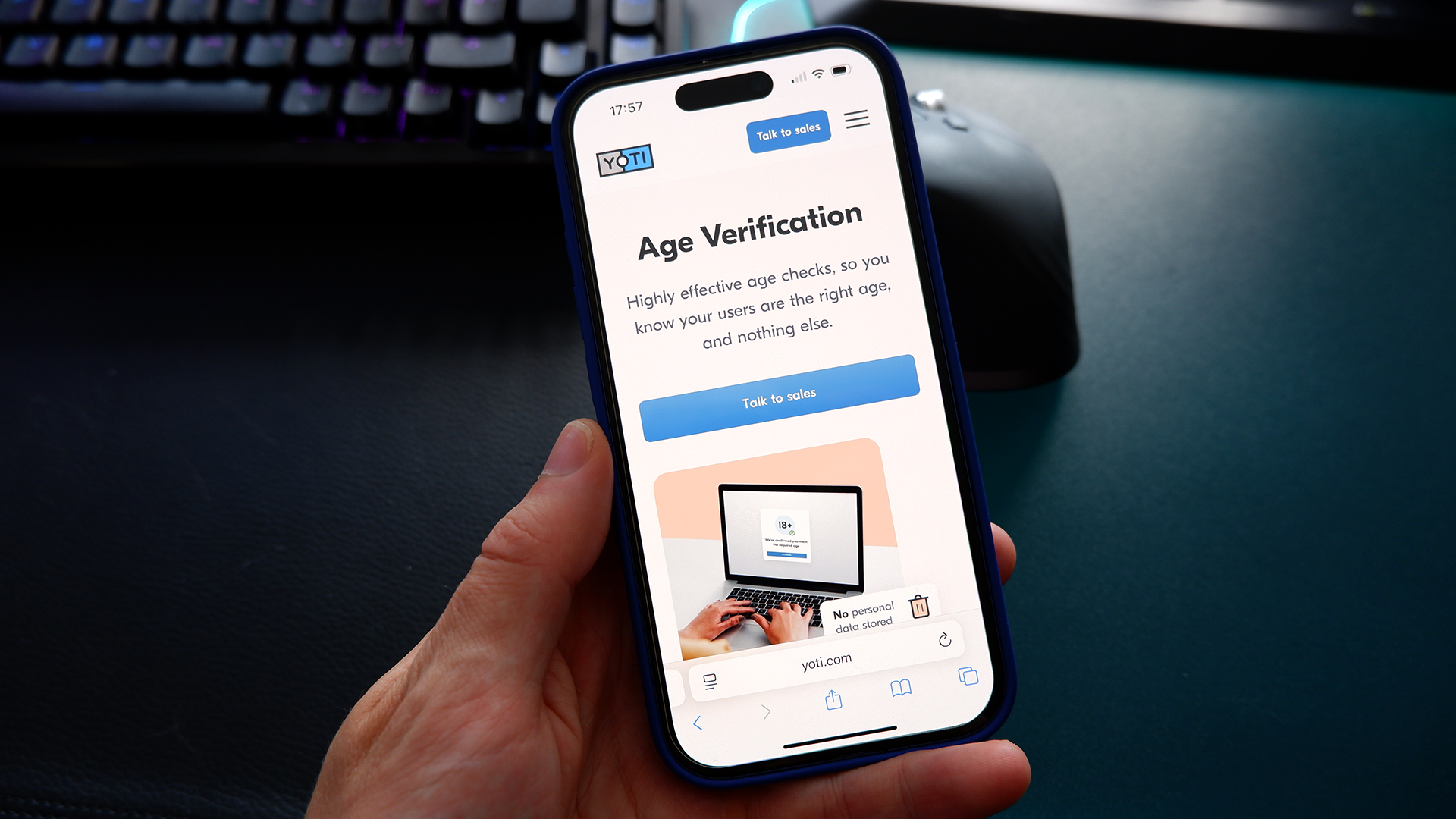Wikipedia challenged the UK's new Online Safety Act and lost, but may have set a new precedent for fighting the rules all the same
The ruling "does not give Ofcom and the secretary of state a green light to implement a regime that would significantly impede Wikipedia’s operations."

Keep up to date with the most important stories and the best deals, as picked by the PC Gamer team.
You are now subscribed
Your newsletter sign-up was successful
Want to add more newsletters?

Every Friday
GamesRadar+
Your weekly update on everything you could ever want to know about the games you already love, games we know you're going to love in the near future, and tales from the communities that surround them.

Every Thursday
GTA 6 O'clock
Our special GTA 6 newsletter, with breaking news, insider info, and rumor analysis from the award-winning GTA 6 O'clock experts.

Every Friday
Knowledge
From the creators of Edge: A weekly videogame industry newsletter with analysis from expert writers, guidance from professionals, and insight into what's on the horizon.

Every Thursday
The Setup
Hardware nerds unite, sign up to our free tech newsletter for a weekly digest of the hottest new tech, the latest gadgets on the test bench, and much more.

Every Wednesday
Switch 2 Spotlight
Sign up to our new Switch 2 newsletter, where we bring you the latest talking points on Nintendo's new console each week, bring you up to date on the news, and recommend what games to play.

Every Saturday
The Watchlist
Subscribe for a weekly digest of the movie and TV news that matters, direct to your inbox. From first-look trailers, interviews, reviews and explainers, we've got you covered.

Once a month
SFX
Get sneak previews, exclusive competitions and details of special events each month!
Last month, the UK rolled out new age verification measures under the Online Safety Act 2023 (OSA), a new bill intended to protect the most vulnerable in the country from the worst of the internet. Whether it's effective is another story, but this is only part of the Act's rollout. There have been months of risk assessments with UK regulator, Ofcom, trying to decide if certain websites fit into certain categories, ranging from Category 1, 2A and 2B, where Category 1 applies the strictest rules on a site or service.
So, here's the kicker: Wikipedia, based on its size and reliance on user-generated content is likely a Category 1. Wikipedia doesn't want to be a Category 1. Wikipedia took its challenge to the UK's High Court of Justice. Today, Wikipedia lost that challenge.
Before you start scribbling down all the details from your favourite Wikipedia pages in case it no longer exists in the UK in a couple months, the ruling is a little more open to interpretation than it sounds at first glance. There's still room for a reasonable argument or exception here.
The High Court of Justice ruled that Wikipedia could not legally challenge the OSA in the way that the Wikimedia Foundation, the non-profit that runs it, had hoped. However, it specifically called out Wikipedia's "significant value" to its users. The judge said of the decision, it "does not give Ofcom and the Secretary of State a green light to implement a regime that would significantly impede Wikipedia’s operations."
The Wikimedia Foundation suggests the ruling could leave Ofcom open to legal action if it didn't protect Wikipedia and its users' rights. Not the sort of thing you'd expect after hearing the court rejected Wikipedia's appeal.
"In order to achieve that outcome, he [the judge] suggested that Ofcom may need to find a particularly flexible interpretation of the rules in question, or that the rules themselves may need amendment in Parliament," the Wikimedia Foundation says of the ruling.
So, it's not a blanket win, but it is a call for common sense, albeit in different words. Though it is ultimately up to Ofcom, the UK's regulator in charge of OSA compliance, and Peter Kyle, secretary of state for science, innovation and technology, to take heed. Kyle previously said that anyone hoping to roll back the OSA is on the side of predators and in league with "extreme pornographers", so I'm not totally convinced he's the man for open dialogue about the issues just yet.
Keep up to date with the most important stories and the best deals, as picked by the PC Gamer team.

The Wikimedia Foundation has long argued that it would be devastating to its operations in the UK if it were deemed a Category 1 service. It claims in a Medium post, the categorisation could potentially lead it to require verification for its millions of self-edited users around the world, or, in turn, allow users to block unverified users and threaten to vandalise pages. Considering Wikipedia is a project run and audited largely by its own users, the implications could be huge.
It seems there is wiggle room for Wikipedia to exist after all. Providing Ofcom and the secretary of state stop trying to bash Wikipedia into something unrecognisable to fit its 'one-size-fits-all' categories.
"If the ruling stands, the first categorization decisions from Ofcom are expected this summer," the Wikimedia Foundation says. "The Foundation will continue to seek solutions to protect Wikipedia and the rights of its users as the OSA continues to be implemented."
If you're wondering how the rest of the Online Safety Act rollout is going, the UK Government has rejected calls to repeal it off the back of a petition with over 500,000 signatures (there's a surprise). The bulk of Brits asked by YouGov think the measures are a good thing, in some capacity, but many think they're pretty ineffective. It's true, age verification measures are very easily bypassed with a VPN or a picture of Sam Porter's face from Death Stranding. Also, the way user data is expected to move around the web to verify users is fraught with danger—it leaves UK citizen's data open to exposure and exploitation. There is a better way to verify a user's age that values privacy and data security, but we're not using it yet. Either way much smaller websites than Wikipedia may have a tough time coughing up the cash required to cover compliance.

👉Check out our list of guides👈
1. Best gaming laptop: Razer Blade 16
2. Best gaming PC: HP Omen 35L
3. Best handheld gaming PC: Lenovo Legion Go S SteamOS ed.
4. Best mini PC: Minisforum AtomMan G7 PT
5. Best VR headset: Meta Quest 3

Jacob earned his first byline writing for his own tech blog, before graduating into breaking things professionally at PCGamesN. Now he's managing editor of the hardware team at PC Gamer, and you'll usually find him testing the latest components or building a gaming PC.
You must confirm your public display name before commenting
Please logout and then login again, you will then be prompted to enter your display name.

